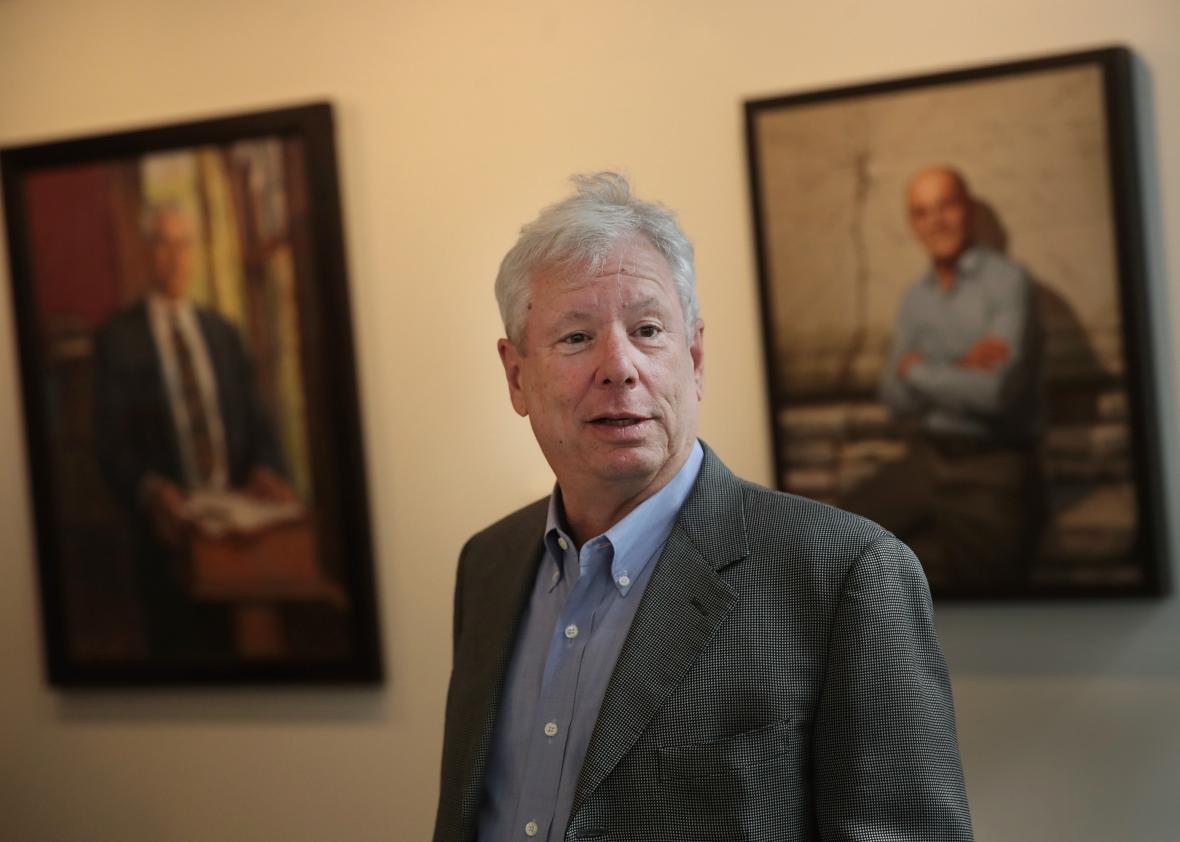Richard Thaler of the University of Chicago, considered one of the founding fathers of behavioral economics, won the 2017 Nobel prize in economics for his influential work on how human nature affects markets. Thaler won the $1.1-million prize for “understanding the psychology of economics,” Swedish Academy of Sciences secretary Goran Hansson said. Although it may seem like an obvious feat, the truth is economists were once fond of thinking about humans as robots who always made choices that maximized their outcomes. But Thaler showed how very human traits, such as lack of self-control, habits, and fear of losing pushed people toward decisions that were not the most advantageous in the long term.
“In order to do good economics, you have to keep in mind that people are human,” Thaler said of the basic premise of his work. When the New York Times asked him how he would spend the 9-million-kronor prize money, Thaler didn’t miss a beat. “This is quite a funny question,” he said. “I will try to spend it as irrationally as possible.”
Thaler is perhaps best known as one of the main proponents of “nudge theory,” the idea that small interventions on how things are presented in the environment can push people to make certain decisions that would benefit them or their environment. The book he co-authored with professor Cass Sunstein, Nudge: Improving Decisions About Health, Wealth, and Happiness, pushed that idea to the mainstream when it was published in 2008. That book had a wide-ranging effect on policymakers as it explained things like how you could get people to eat more healthy foods simply by improving their placement on supermarket shelves and get them to save for retirement by automatically enrolling them in 401(k) plans.
Thaler has previously said that his “favorite illustration” of a nudge was how Amsterdam’s Schiphol Airport greatly reduced cleaning costs around its urinals by etching images of flies on the urinals, giving people something to aim at. That strategy has since been copied in urinals around the world.
The prize was well-deserved in part because Thaler and others who work in the field have been successful at changing behavior. Bloomberg’s Mohamed A. El-Erian explains:
Thaler and others have already “nudged” individuals to make better decisions about their financial security, helped regulators better understand the drivers of excessive risk-taking, and provided investors with a better understanding of the perils of repeating past mistakes. Their work has encouraged governments and companies to make a greater effort to incorporate behavioral science, including elements related to unconscious biases, as well as comfortable but misleading rules of thumb and analytical shortcuts.
Thaler also transcended academic circles a bit and even made it into the big screen. He had brief cameo in the 2015 movie The Big Short alongside pop star Selena Gomez and used behavioral economics to help explain what caused the 2008 financial crisis.
The Nobel economics prize is formally known as the Sveriges Riksbank Prize in Economic Sciences in Memory of Alfred Nobel. It was established in 1968 and was not part of the original group of Nobel awards that date back to 1895.
